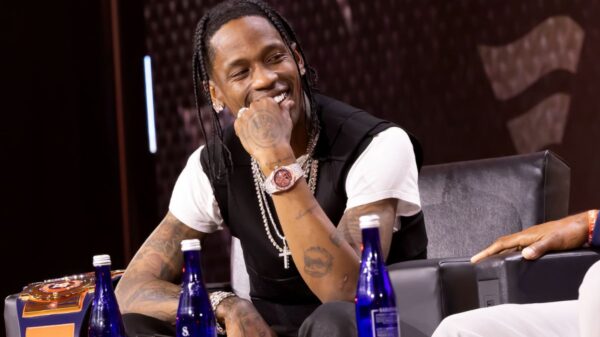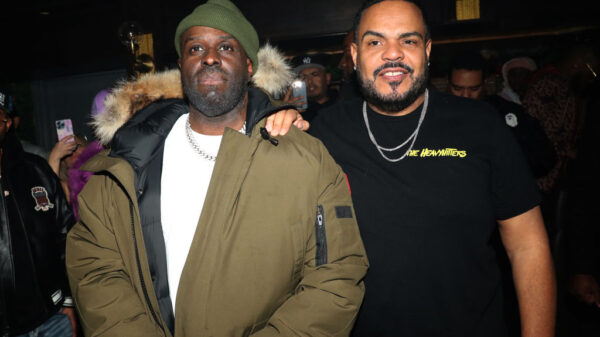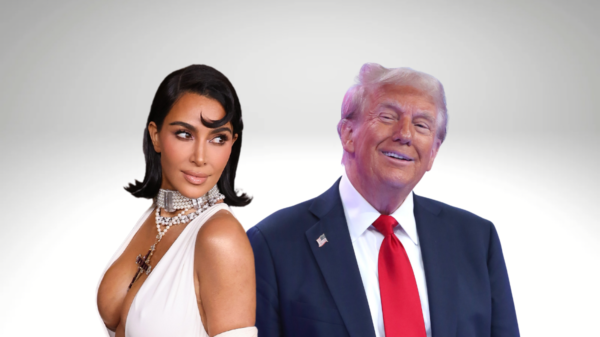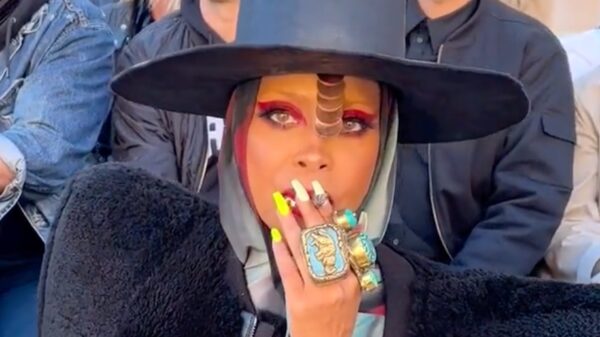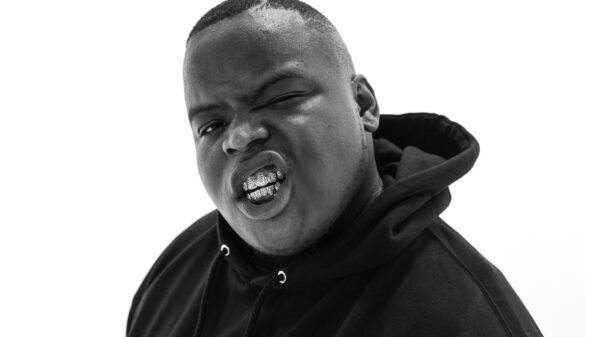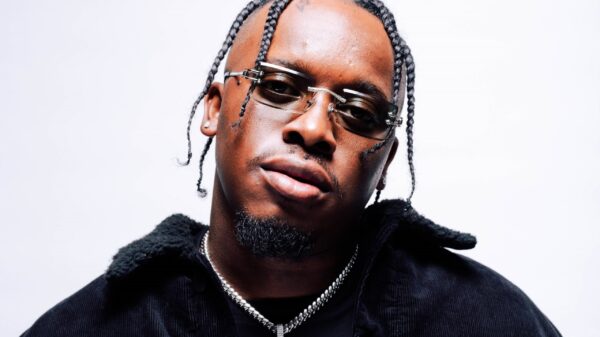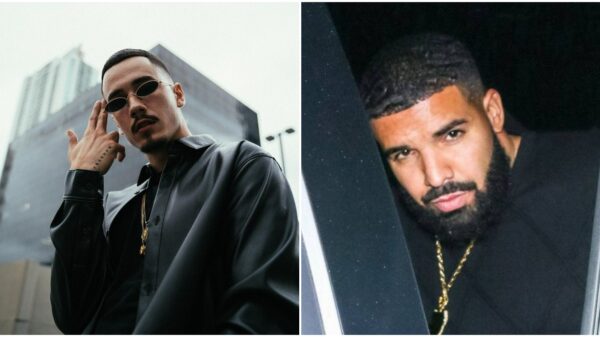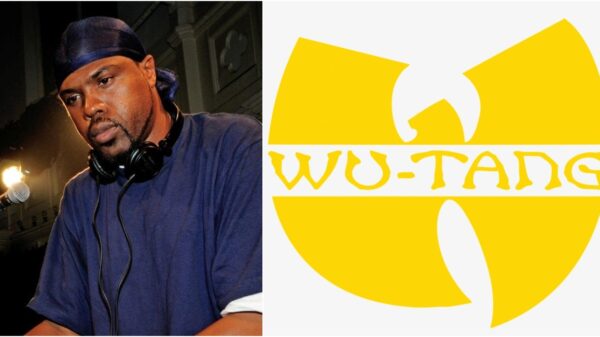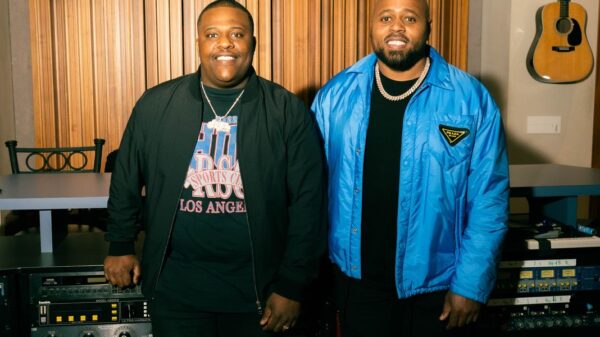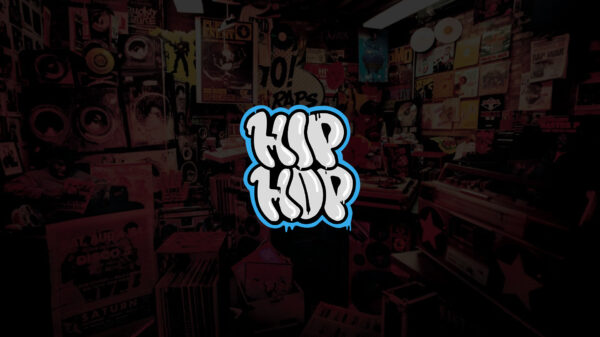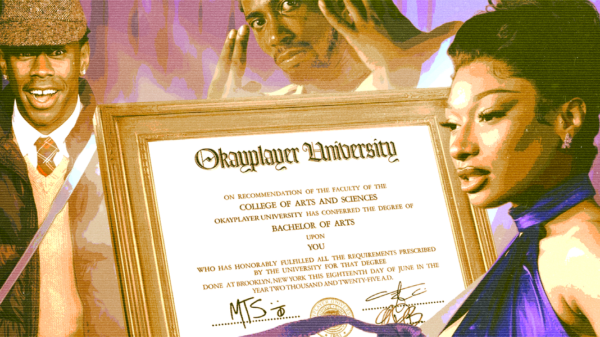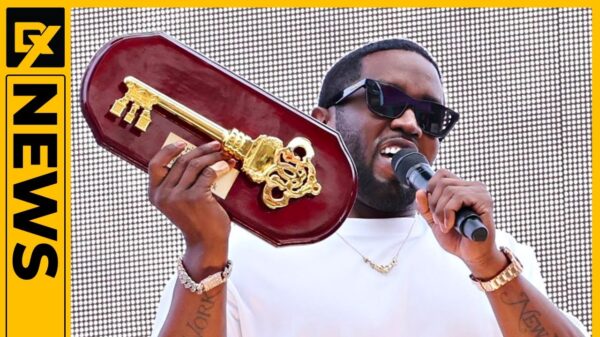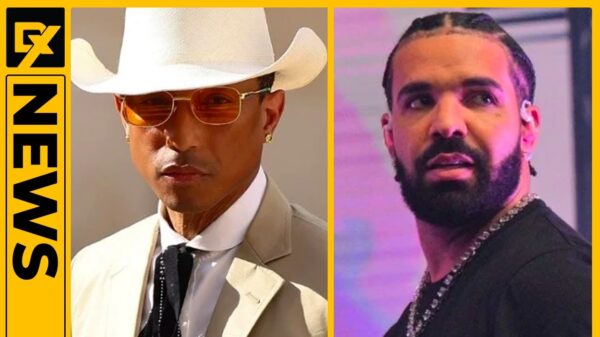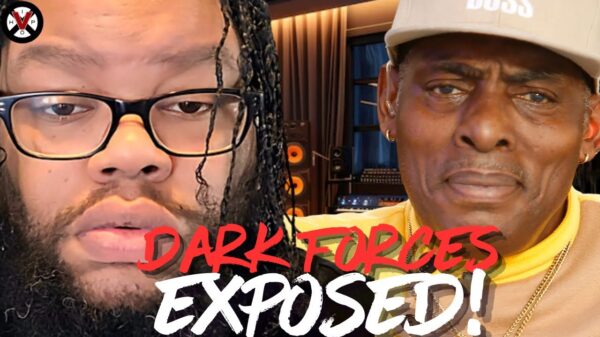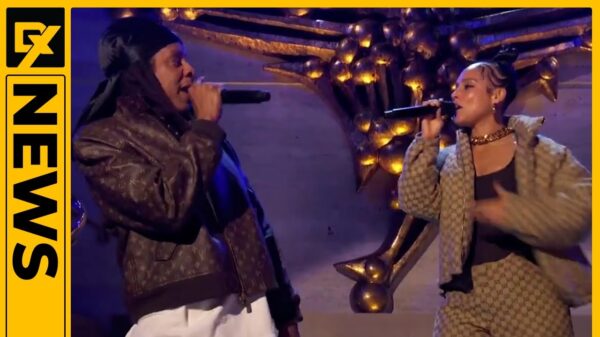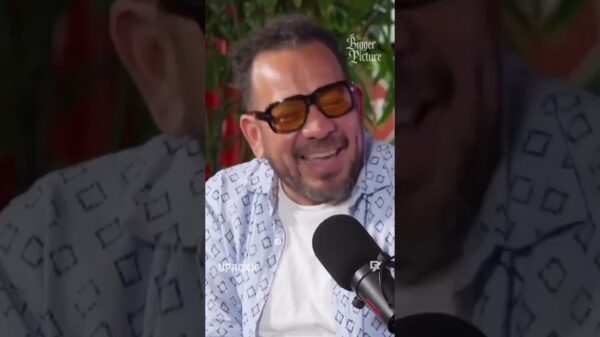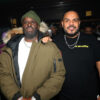“Many Men (Wish Death)” was the cold heart of 50 Cent’s Get Rich Or Die Tryin’. Thomas Hobbs spoke to Six Figga Digga about crafting the song’s beat.
“Many men wish death upon me / Lord, I don’t cry no more / I don’t look to the sky no more” croons 50 Cent in a tone that sits somewhere between downtrodden and tenacious. The backing music is heavy, creating a feeling that the walls are closing in, with 50 unsure whether to embrace the Grim Reaper or swing an axe at his neck. The South Jamaica, Queens MC questions his faith in real-time, ultimately choosing to put a revolver under his pillow instead of a bible and to retaliate rather than show mercy.
Released over 20 years ago, “Many Men (Wish Death)” was the cold heart of 50 Cent’s major label debut, Get Rich Or Die Tryin’. While so much of the record framed 50 as an unstoppable force of nature, buoyed on by surviving nine bullets — sustained in 2000 during an attempted murder hit that permanently changed the rapper’s voice, adding its trademark slur — this was the rare song that suggested some sadness underneath his cocky cloak of invincibility, a tiredness even. Massive woozy singles “In Da Club” and “21 Questions” might have cemented 50 Cent as a household name on the Billboard charts, but it was “Many Men” that forced the masses to have an emotional stake in his story.
Even if the perils of gun violence were alien to your own life experiences, “Many Men” felt relatable somehow, existing as an anthem for anyone who ever thought the odds were stacked against them. “Soldiers in the military told me they used that song to get hyped up before going into battle. I heard it helped a bunch of people get through their depression, too,” Harlem-born producer Six Figga Digga (real name Darrell Branch) told Okayplayer. “It doesn’t matter if you come from the hood or not: it’s just this universal song that you play whenever your back is against the wall.”
Yet 50 Cent wouldn’t have excavated his demons so effectively if Digga’s beat didn’t trigger him to do so. Taking the shivery piano line and heart-rending strings of R&B group Taveres’ “Out The Picture,” a soppy song about all the loneliness associated with a breakup, and combining it with earth-pounding drums and a hi-hat that sounded like someone sighing because they’d just been forced to defend themselves against an advancing enemy, the “Many Men” beat isn’t just the slowest on Get Rich Or Die Trying but the most emotive. Digga, who said he made the beat in “20 minutes,” wanted to create something that would force an artist to show their vulnerable side.
“In that era I was definitely drawn to the more somber samples,” he said. “I understood they created a feeling that was going to help an artist to open up.”
Photo courtesy of Digga
Digga’s come up
Digga’s musical journey started early. Raised on Harlem’s 145th Street and Lenox Avenue, Digga was exposed to music creation before hitting puberty, with his grandfather Al Avant (a singer who worked with the likes of Otis Redding and producer Patrick Adams) introducing him to endless soul vinyl. His uncle Al-B, meanwhile, was part of the Disco Four (an early rap group in Harlem) and excitedly taught his young nephew how to use decks. “I was making and producing music from around 8 years old,” Digga said. “It was only around 13 or 14 that I felt like I was on the path to being a professional.”
One of Digga’s closest childhood friends was a pre-fame Cam’ron, who would spit raps over his beats and shared the same dreams of making it big. In truth, there weren’t too many other options, with this duo’s hometown ravaged by the crack epidemic. “[In the ‘80s] it was rough in the neighborhood, and the only way you made it out was through basketball or rapping,” Digga said. “When you see those movies and everyone is strung out? That wasn’t an exaggeration. In the early ‘80s, when me and Cam were kids, we were surrounded by crack addicts who looked like zombies. It was tough walking to school ‘cause you would pass by people who you loved and grew up with. It was sad, but it was also normal [to us].”
When Cam’ron was discovered by Lance “Un” Riviera — the man who financed The Notorious B.I.G’s early career — and signed to his Untertainment label, Digga was brought along for the ride. The majority of the beats on Cam’s first two albums, Confessions of Fire and S.D.E, were subsequently handled by Digga.
Their artist-producer relationship arguably peaked with 2000’s “Let Me Know.” This hood anthem was built around a clever if unexpected flip of brass fanfare classic “Heavy Action” by Jonny Pearson, an audacious television theme song that has soundtracked Monday Night Football for decades. Another one of their collaborations, “Violence,” which features Ol’ Dirty Bastard, went to an even darker place, with Digga providing Camron with a beat designed to bring more of a punkish vibe to Harlem. It inspired the typically laidback MC to uncharacteristically scream down the microphone about, well, burning off nipples — a sign of his horrorcore roots.
Reflecting on this period, Digga said: “It’s crazy because the only reason the Ol’ Dirty Bastard appeared on “Violence” [with Cam’ron] was by chance,” Digga said. “He was in the next studio and heard my beat through the wall. He wandered in and said ‘What the fuck is this? This is crazy.’ ODB went into the booth and did eight bars right off the top, then he disappeared again.”
He also has memories of working with a pre-fame Beyoncé, who worked with Cam’ron and Jim Jones on the R&B-trap hybrid “Do It Again.” Listening to this song in 2023 — a time when Beyoncé is the most recognizable person on the planet and so PR-trained that we rarely see her stray into any kind of controversy — is a jarring experience. “All those crimes we’ve done / All those times were fun” sings Queen Bey on an unapologetic hook written by Cam’ron that celebrated the trappings of the thug lifestyle. “That was just a regular R&B hook studio session, nothing out of the ordinary,” Digga said, laughing. “When you achieve fame with one of your childhood friends, it’s a lot more special. Me and Cam were living out our dreams.”
The making of “Many Men”
In the years that followed Digga made standout beats for Jennifer Lopez [“Open Off My Love”] and JAY-Z [“What They Gonna Do Part II”], but there was still one beat he couldn’t shift. Years before it entered 50 Cent’s orbit, Digga said the “Many Men” beat was given to Nas and The Diplomats. However, despite recording vocals, their efforts were left on the cutting room floor. Yet when 50 Cent came into the Untertainment offices (“he was doing his rounds” said Digga) looking for something new, the beat was finally sold. “50 had this aura about him. There was this intensity and ambition. He had this me against the world attitude. It was something he would hold onto [for the rest of his career].”
In truth, on “Many Men (Wish Death)”, 50 Cent created one of the most paranoid and dread-inducing songs to ever appear on a mainstream gangsta rap album. Referencing “crackers” who want to give him 100 years in prison, an inability to cry, and bouts of PTSD from being shot (“In my nightmares, niggas keep pulling Tecs on me”), 50 weighs up the sad realities of crime, while also indulging in them. Just when you want to sympathize with him and the way his heart has turned cold, 50 threatens to shoot his assassins in their faces — he criticizes the systemic violence in America’s inner cities while also furthering it, arguing that deadly revenge is a rite of passage on his block. You don’t know whether to console him or to fear him.
I wonder, could Digga relate to the idea of a criminal lifestyle turning one’s heart cold? Was it something he saw among his peers in Harlem? He replied: “I wouldn’t say the streets turned my heart cold, but the music industry certainly did. There were more snakes in the industry than there ever were in the streets. And then some of the gangsters from the street became part of the industry.”
Digga first heard the finished version of “Many Men” when he purchased a copy of Get Rich or Die Tryin’. Given it was executive produced by Dr. Dre and Eminem, he was proud his beat had largely been untouched and 50 had held onto it. One of the most successful debuts of all time and that rare rap album that reached diamond-selling status, Get Rich Or Die Tryin’ hit the streets like a nuclear missile, this metaphoric mushroom cloud noticeable during the early winter months of 2003. Reflecting on that period — where 50 Cent went from mixtape innovator to having his own video game on PlayStation 2, ad-libs from Jim Carrey, and every suburban American teenager wearing G-Unit tracksuit bottoms — is still exciting. “You had the ‘Many Men’ beat playing out of every car and every rapper was freestyling to it,” Digga said. “50 made New York gangsta rap feel like it was truly back again, because no one else was selling records like that [at the time].”
However, despite all the mainstream success, there were still some who dismissed 50 Cent as a lyricist, with naysayers claiming the G-Unit general’s bars were too simplistic and his subject matter leaned too heavily on threatening enemies and counting stacks of $100 bills. Digga argued 50 Cent was a complete songwriter and one of the first to perfect the marriage between hardcore lyrics and chantable melodic hooks; something a million and one artists have imitated in the years since. “You already had Ja Rule and Nelly flirting with melodies, but 50 was doing that singing shit in a hardcore style,” Digga said. “It was different. The complete songs — where the MC understands how to write bridges, hooks, verses — are the ones that last.”
The lasting influence of “Many Men”
The influence of 50 Cent’s “Many Men” is all around us. Brooklyn drill innovator Pop Smoke sampled it on “Got It On Me;” Lil Tjay recently remixed it; and even Metro Boomin and 21 Savage paid homage. 50 Cent has had an enormous impact on UK rappers too, convincing the likes of J-Hus and Digga D (who have both cited him as a formative influence in interviews) to pick up microphones and prioritize morose lullaby hooks just as much as verses. But Six Figga Digga didn’t necessarily reach the same level of pop culture ubiquity as Fiddy.
The humble producer conceded he was never the best self-marketer, something that has potentially held him back. “When people do those best producer lists, they tend to leave me out,” Digga said. “But it isn’t because of my skills or what I have done, but because of marketing. I guess I try to keep humble. I’ve never been one to brag. But I would say this: how many producers have been around long enough to produce for Big L to JAY-Z to 50 Cent and Benny The Butcher?”
Digga is currently working on a new solo compilation album, where guests, including Jim Jones, Raekwon, Skyzoo, and Camp Lo, will rap over his beats. It’s a chance to remind the world of his brilliance. He said he’s still in love with creating music, hoping to earn enough money over the next decade to potentially change his name to Eight Figga Digga. “That would be nice,” he laughed. Whatever the future holds, Digga is aware he will forever be defined by the “Many Men” beat.
Asked again why “Many Men (Wish Death)” remains so powerful twenty years on, and also how he would like to be remembered if everything stopped tomorrow, he concluded: “Throughout my production career I always enhanced an artist or led them into doing something different. I gave them that “Digga Style” and helped rappers get to a level where doors opened [so they could get even bigger]. Not many producers can say they have songs right next to Dr. Dre beats.”
“Look, I wouldn’t even say it’s near my best beats technically, but I think it resonated with the people because it is the hater’s anthem. When you think of the song you want to be inspired by, at a time when people are tearing you down, ‘Many Men’ is the perfect choice.”
For more Behind the Beat
__
Graphic: @popephoenix for Okayplayer
Thomas Hobbs is a freelance culture and music journalist from the UK. His work has appeared in the Guardian, VICE, Financial Times, Dazed, Pitchfork, New Statesman, Little White Lies, The i, and Time Out. You can find him on Twitter: @thobbsjourno.
Read the full article here

